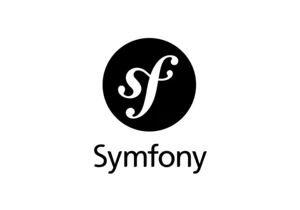Symfony 5.3 will be released in May 2021. This is the first article of the series that shows the most important new features introduced by this Symfony version.
Contributed by
Tobias Nyholm
in #40600.Symfony applications can use YAML, XML and/or PHP as their configuration format. Each of them has its advantages and its drawbacks, so we intend to keep supporting the three of them equally in the future. In 2020 Symfony moved all its internal container configuration from XML to PHP thanks to a colossal community effort. This container configuration uses a fluent interface pattern based on methods like service(), args(), etc. However, the PHP configuration of packages/bundles is still based on big arrays like the following: 1 2 3 4 5 6 7 8 9 10 11 12 13 14 15 16 17 18 19// config/packages/security.php use Symfony\Component\DependencyInjection\Loader\Configurator\ContainerConfigurator;
return static function (ContainerConfigurator $container) { $array = [ 'firewalls' => [ 'main' => [ 'pattern' => '^/*', 'lazy' => true, 'anonymous' => [], ], ], 'access_control' => [ ['path' => '^/admin', 'roles' => 'ROLE_ADMIN'], ], ];
$container->extension('security', $array);}
In Symfony 5.3 we’re improving the PHP config of packages/bundles thanks to the new Config Builder Classes. These classes are generated automatically in your project build directory and transform your bundle configuration classes into fluent interface classes with methods named after your config options. For example, in Symfony 5.3 you can keep configuring the security package with the PHP array shown above or you can use the following configuration: 1 2 3 4 5 6 7 8 9 10 11 12// config/packages/security.php use Symfony\Config\SecurityConfig;
return static function (SecurityConfig $security) { $security->firewall('main') ->pattern('^/*') ->lazy(true) ->anonymous();
$security
->accessControl(['path' => '^/admin', 'roles' => 'ROLE_ADMIN']);};
This new format is not only more concise and readable, but it’s also fully autocompletable by your IDE. Best of all, the SecurityConfig class used in this example is generated automatically by Symfony. We didn’t have to change anything in the security package. These config builders are created for all packages/bundles of the application (even your own). For example, if you create a bundle with the acme_foo extension alias, Symfony will generate the Symfony\Config\AcmeFooConfig class for you (if your dependency injection extension changes, the class is regenerated; there’s a cache warmer to generate all config classes; etc.). We intend to keep supporting YAML, XML and PHP formats equally in the future, but we hope that these new config builders will make you give PHP config a try. The new PHP config is as concise and readable as YAML, it provides better autocompletion than XML and it requires zero dependencies and extensions.
Sponsor the Symfony project.http://feedproxy.google.com/~r/symfony/blog/~3/CN2DVUSzQas/new-in-symfony-5-3-config-builder-classes
Connectez-vous pour ajouter un commentaire
Autres messages de ce groupe

This week, development activity mostly focused on dealing with the deprecation of sleep/wakeup methods in PHP 8.5 and their replacement by serialize/unserialize methods. In addition, we published more

It’s been only in July that we published symfony/ai and kicked off our AI initiative, but the repository has been busy since day one. Over 500 stars, more than 200 pull requests & issues, trending

🎤 Take the stage at SymfonyCon Amsterdam 2025, on your own terms!
The Unconference track is back and more dynamic than ever!
This unique, participant-driven format invites attendees to shape

This week, Symfony completed the migration to PHPUnit 12 in the 7.4 branch, which required many changes during the past weeks, such as replacing annotations with attributes. In addition, we updated th

🧑💻HACKDAY IS COMING!
Get ready to code, collaborate, and contribute, Symfony Hackday is back!
Join us in Amsterdam on Saturday, November 29th, for a hands-on hackathon designed to bring the

This week, Symfony released the maintenance versions 6.4.24, 7.2.9, and 7.3.2. Meanwhile, we began deprecating the XML configuration format in some components, enhanced the YAML configuration format t

Symfony 6.4.24 has just been released. Read the Symfony upgrade guide to learn more about upgrading Symfony and use the SymfonyInsight upgrade reports to detect the code you will need to change in you
